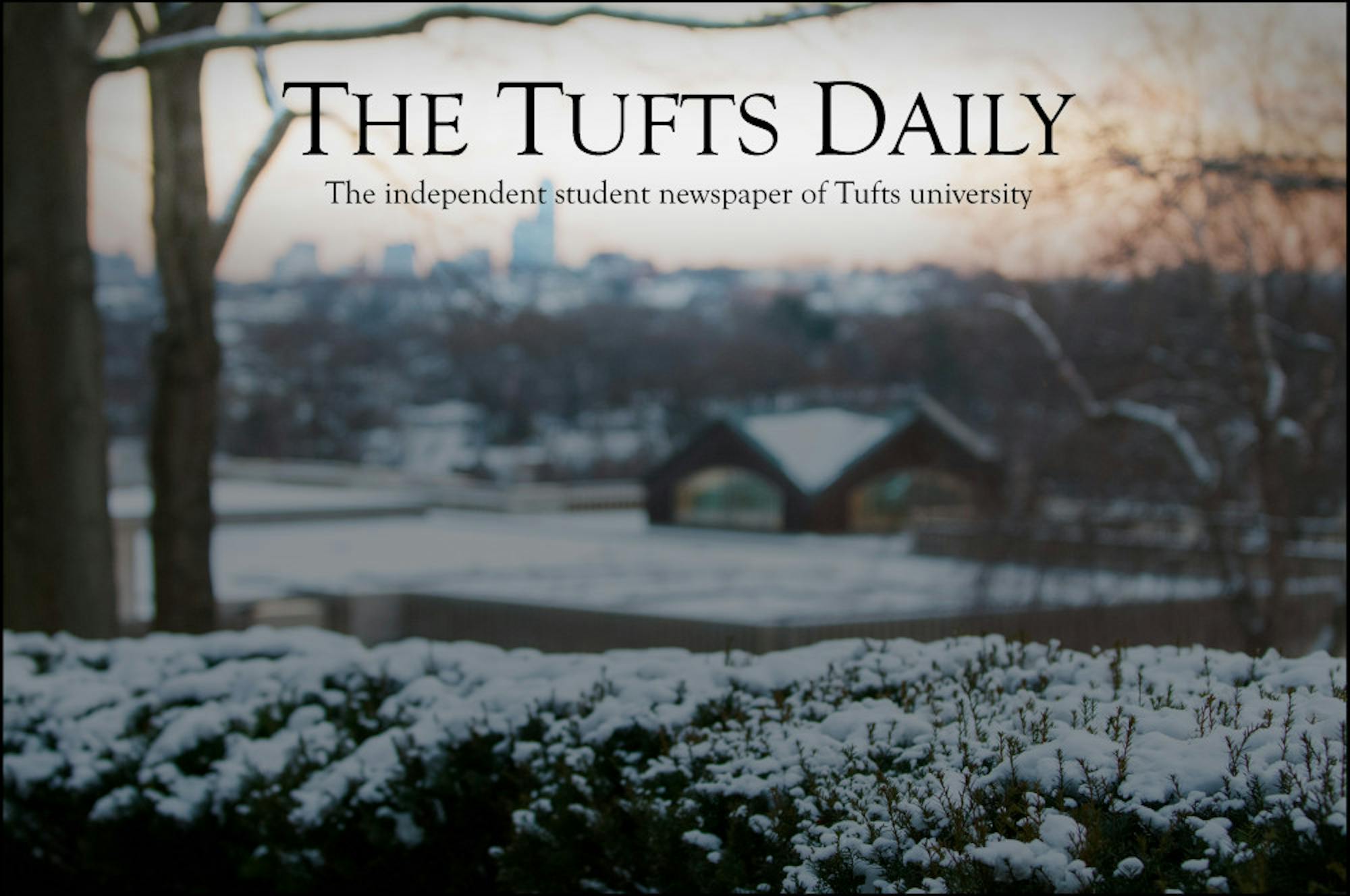Tufts' second annual National Dialogue on Race Day, which featured a five-person panel discussion on racial inequality and public policy in the United States, took place on Monday night in Cabot Auditorium. The event was sponsored by the Center for the Study of Race and Democracy (CSRD).
This year’s event, which was titled “The Civil Rights Act: 50 Years Ago, 50 Years Later, 50 Years from Now,” examined the progress of the civil rights movement in the context of both the Civil Rights Act of 1964, as well as the recent events in Ferguson, Mo. The panel was led by Peniel Joseph, director of the CSRD and professor of history, who explained that the events in Ferguson echoed the racism and racial domestic policy of the 1960's.
“The events of the summer really transformed how we talk about race,” Joseph said. “Ferguson is a metaphor for how we think about the issues we will talk about tonight."
Joseph posed a number of questions to the panel of scholars, authors and activists. When asked how far the United States has come since the Civil Rights Act and dreams of racial equality, Alan Solomont (A ’70), Dean of the Jonathan M. Tisch College of Citizenship and Public Service at Tufts, said that while a lot has changed since he first attended Tufts as a student in 1966, a lot of backsliding has occurred in the last decade.
“The situation at the moment is sobering,” Solomont said.
Associate Professor of Ethics, Political and Social Philosophy Lionel McPherson said it is important to differentiate between increased opportunities for individual black Americans and the conditions for black Americans on a macro level.
McPherson also cited statistics indicating that black unemployment has been twice as high as white unemployment in the United States for the past 50 years and that schools are more segregated today than they were in 1980.
“These facts are sobering and I don’t see a lot of basis for optimism in looking at them,” McPherson said.
Many panelists brought up the issue of mass incarceration as an example of continued racial discrimination in U.S. policy.
"More than sixty percent of American prisoners are people of color… in the U.S., 22 percent of the population are people of color,” Barbara Dougan, the Massachusetts Project Director of Families Against Mandatory Minimums, said.
“I don’t think that sounds like a post-racial America,” she added.
Paul Watanabe, associate professor of political science and director of the Institute for Asian American Studies at the University of Massachusetts, Boston, emphasized the importance of taking action to fight for racial equality, especially considering the harsh realities many black Americans face.
“If we spend all our time dreaming, we’re not going to confront [these realities],” he said.
Joseph then steered the discussion to the recent events in Ferguson and asked whether Ferguson would lead to further discussions and actions to advance racial equality.
Kimberly McLarin, professor of writing, literature and publishing at Emerson College in Boston, expressed her optimism that Ferguson would launch a movement because of the efforts young people took to publicize the killing of Michael Brown when the traditional media failed to cover the story.
“I’m hopeful… that it may herald a movement,” she said.
Watanabe drew a connection between the militarization of the police force and the “war on drugs,” as he said both policies have clear racial dimensions. He said the focus on looting in many national discourses on Ferguson, such as on Fox News, exemplified the continued resistance to considerations of structural racial inequality.
“Let us not kid ourselves -- the forces of resistance are strong,” he said.
Joseph then opened the panel to questions from students. The first question was about the possibility of reparations; Watanabe said that while reparations on a national level would probably not happen, institutions needed to first recognize their underpinnings in the institution of slavery and then offer reparations themselves to their employees or students.
Watanabe suggested students in higher education should pressure their institutions to offer reparations, which would serve as a financial method to address the past that higher education institutions are implicated in.
Another student asked what voters interested in ending mass incarceration and other problems facing communities of color should look for in candidates, especially in 2016. Solomont said voters should pressure candidates to support these issues rather than wait for candidates to address them.
“It’s about creating the candidate or leader… and letting them know what’s on your mind,” Solomont said.
Another student also asked what white people and people of color could do to dismantle white supremacy. While McLarin said she had more interest in affecting policy than changing individual behavior, Joseph said there is still great difficulty in talking about white privilege after the civil rights movement and suggested offering a required class on African American history or the history of slavery at universities.
“You’ve got to find out about the history of racism and… black folks in America,” Joseph said.
Watanabe said the fundamental inequalities that people of color face in the United States could only be solved if white Americans let go of some of their privileges.
“We’re not going to move closer to equality… until white Americans give up something,” he said.
Panelists discuss racial inequality at National Dialogue on Race Day






